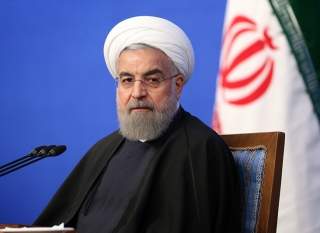As Aleppo Falls, Iran Rises
Assad's victory in Aleppo will further solidify the Iran-led resistance bloc.
The Iranians, it seems, stand to benefit more from the defeat of their foes in Syria. In the past few weeks, Tehran has scored a number of points against its regional archrival Saudi Arabia. In Lebanon, the March 14 Alliance, led by the late prime minister Rafik Hariri’s son Saad Hariri, himself a former prime minister, has accepted the Iran-backed Hezbollah ally Michel Aoun as the president of the country after a long tussle of more than two years over the issue. Iran’s continued refusal to cut oil production to stabilize global oil prices, on the grounds of its major market losses under the U.S.-led sanctions regime, finally forced Saudi Arabia to exempt it from production cuts under a recently concluded OPEC deal. What is more, the rebels’ defeat in Aleppo seems to deal a parting blow to the Saudis, as they remain stuck in a quagmire in Yemen.
Setting aside any of Tehran’s scoring points against Riyadh, the victory in Aleppo is a big step to further solidify the Iran-led resistance bloc. Pro-Iran Shia militias in Iraq, Hezbollah in Lebanon and pro-Assad forces in Syria are part and parcel of the resistance bloc. The successful war in Iraq against the Islamic State and the fight against the anti-Assad rebels in Syria have emboldened the resistance bloc, making it confident of victory against the regional foes. With Russia on its side (though Moscow denies being a part of the resistance bloc), the resistance bloc looks indomitable. This is what makes the Saudis, the Israelis and the Turks worry about Iran. Riyadh and Tel Aviv strongly opposed the nuclear deal between Iran and the United States signed in July last year, precisely to undercut the rise and power of the resistance bloc. They are scared of how Iran might use the resistance bloc in a new context to stabilize or destabilize the Middle East region. In other words, they see the elevation of Iran in an influential position as disastrous to their national interests. But the reality is that the resistance bloc is here to stay, thwarting challenges to Iran and its allies. To put it briefly, Iranian power cannot but be reckoned with, and with good reason.
Mohammed Nuruzzaman is associate professor of international relations at Gulf University for Science and Technology in West Mishref, Kuwait.
Image: Hassan Rouhani in March 2016. Wikimedia Commons/Creative Commons/Meghdad Madadi

